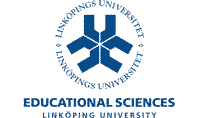|
|
| |
| SYLLABUS |
| Children and Youth Who Challenge School ,
15 ECTS Credits |
| |
COURSE CATEGORY Fristående kurs
MAIN FIELD OF STUDY
SUBJECT AREA Education, Pedagogical Work, Special Education
|
|
COURSE CODE |
|
921G14 |
|
| AIM OF THE COURSE |
On completion of the course, the student should have:
- acquired knowledge of the historical and ideological developments behind the aim "a school for all".
- basic knowledge of the conditions of different groups and individuals in society and their importance for daily school life.
- developed knowledge and understanding of children and adolescents who challenge school.
- acquired knowledge of strategies to create environments for pupils' development and learning. |
| CONTENTS |
The course contains orientation in social progress, education policy, processes of change and steering documents in a national and international perspective. The concepts of normality and deviation are problematised and discussed on the basis of different theoretical models.
School and society resources in an inclusive school are problematised on the basis of ethical and legal positions. Daily school life is discussed based on the sex, ethnicity and class, among others.
The roles and approaches of pupils and teachers in a school for all are also studied. Focus is on didactic research that may prepare the student for pupils who challenge school. |
| TEACHING |
| Lectures, seminars, case studies, group assignments and individual course assignments are included in the course. |
| EXAMINATION |
The course is examined continuously in oral and written presentations/course assignments, individually or in groups. Active participation in seminars and presentations is required.
Students failing an exam covering either the entire course or part of the course two times are entitled to have a new examiner appointed for the reexamination.
Students who have passed an examination may not retake it in order to improve their grades. |
| ADMISSION REQUIREMENTS |
a minimum of 30 HE credits in a behavioural science subject, or at least two completed semesters on the teacher education programme or another behavioural science education. The course is also open to people with police, counsellor or school nurse qualifications. |
| GRADING |
| A grade of Pass with Credit, Pass or Fail is given for the course |
| CERTIFICATE |
| Course certificate is issued by the Faculty Board on request. The Department provides a special form which should be submitted to the Student Affairs Division. |
| COURSE LITERATURE |
|
The course literature is decided upon by the department
in question. |
| OTHER INFORMATION |
Planning and implementation of a course must take its starting point in the wording of the syllabus. The course evaluation included in each course must therefore take up the question how well the course agrees with the syllabus.
The course is carried out in such a way that both men´s and women´s experience and knowledge is made visible and developed. |
| |
Children and Youth Who Challenge School
Barn och ungdomar som utmanar skolan |
| |
Department responsible
for
the course or
equivalent:
IBL - Department of Behavioural Science and Learning |
| |
|
|
|
|
|
| Registrar No: 242/07-41
|
|
Course Code: 921G14 |
|
|
|
| |
|
Exam codes: see Local Computer System |
|
|
|
| Subject/Subject Area : |
|
|
|
|
|
| |
|
|
|
|
|
| Level |
|
Education level |
|
|
Subject Area Code |
|
Field of Education |
|
| G2X |
|
Basic level |
|
|
UV2 |
|
SA |
|
|
The syllabus was approved by the Board of Educational Sciences 2011-02-15
|
|
|
| |
